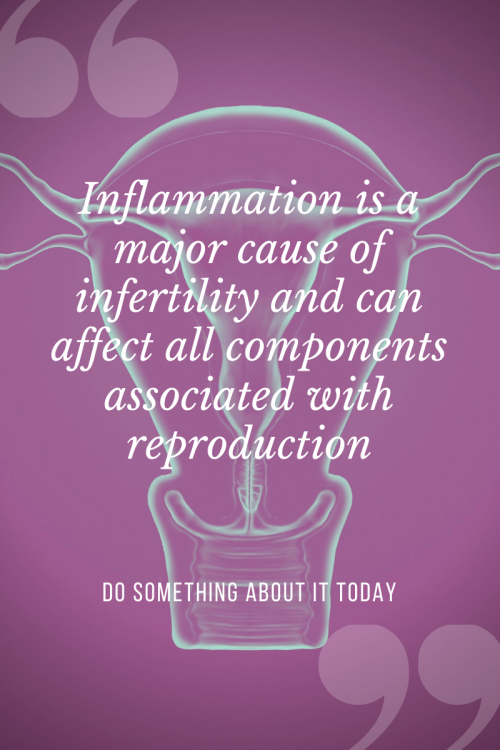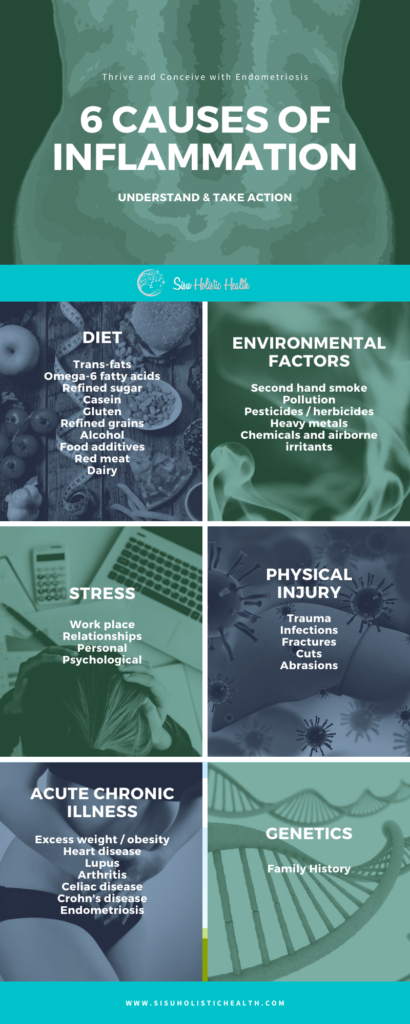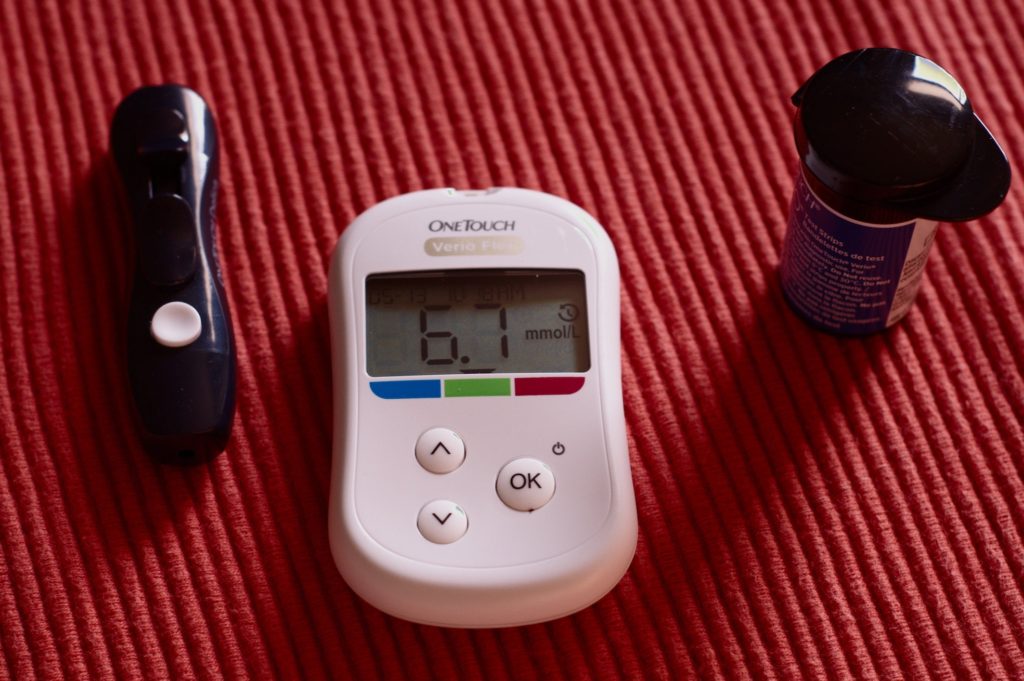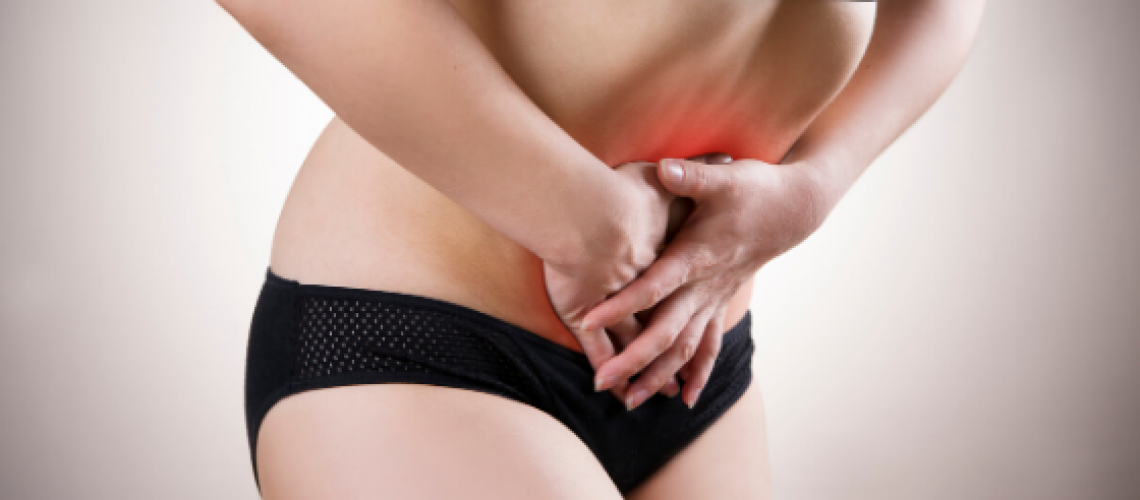
Do you have endometriosis? Have you been trying desperately to get pregnant? Are you confused about how endometriosis affects fertility? Did you know that if you reduce inflammation in your body you can significantly improve your endometriosis-associated infertility? It is a very complicated subject and I have tried to simplify this into this blog article – I do hope I have succeeded! Do let me know if I haven’t!

Endometriosis and inflammation
Endometriosis or Endo (for short) is clearly believed to be an inflammatory disease driven by the sex hormones estrogen and progesterone. Excess inflammation is the root cause of many conditions and causes further imbalances. In Endometriosis, it is both a symptom and potentially a root cause, causing a vicious cycle within the body. Inflammation in and around the uterus and womb have been found to compromise implantation of a fertilised egg (Yin et al., 2018), thus causing temporary and misunderstood infertility.
In women with Endometriosis, cells from the womb lining, known as endometrium, are found in other parts of the body. These cells are most commonly found in areas within the pelvis, from wall linings to within these organs, such as on the ovaries, fallopian tubes, womb, bladder, and bowel. They can also be found in other much less common areas from the lungs, heart and even in the nose.
Once these cells attach to the wall lining of where they are, they undergo a cycle, the same as the menstrual cycle. These patches here is nowhere for them to leave the body, as it does in the form of a period when they are in the uterus. The lack of somewhere to go causes inflammation and subsequently pain, and can also result in scar tissue.
In addition to inflammation in the location of the Endometriosis growths, women also experience inflammation resulting from auto-immune type reactions occurring in other areas of the body (it is still unknown if Endometriosis is an autoimmune disease, but it does show many symptoms of being one). For example, inflammation can occur in the digestive system, nervous system, and joints, which then results in pain.
So what exactly is inflammation?
Inflammation is a basic method by which we respond to infection, irritation, or injury (Weiss et al., 2009) by producing white blood cells and other substances. In some diseases, an inflammatory response is produced, where the body reacts as if there is an invader, when in fact there is not. These are known as ‘autoimmune diseases’, where the body’s normally protective immune system fights itself and results in tissue damage. Examples of these diseases include Hashimoto thyroiditis, Inflammatory Bowel Disease (IBD) and Rheumatoid Arthritis. Endometriosis is not known to be an autoimmune disease but it does have many attributes of one.
Inflammation occurs through the following stages:
- chemicals from the body’s white blood cells are released into the blood or affected tissues to protect your body from foreign substances.
- the release of chemicals increases the blood flow to the area of injury or infection.
- redness and temperature increase then occur in the area.
- swelling then also occurs because some of the chemicals (plasma proteins and leukocytes) cause a leak of fluid into the tissues.
- nerves may be stimulated causing pain.
Types of inflammation
There are two types of inflammation: acute and chronic. Acute inflammation comes on rapidly, usually within minutes and is short-lived such as hours or days. Chronic inflammation starts in the same way as acute inflammation but then changes into a lingering state that can last for months and years when the immune response fails to address the problem (Harvard Health Publishing, 2020). This chronic low-level inflammatory response at a cellular level (known as the “silent killer”) develops without pain and can lead to ongoing negative impacts on the body, that can lead to obesity, diabetes, cancer, heart disease and auto-immune conditions.
It is not understood if endometriosis results in women developing other inflammatory auto-immune conditions, or if they are part of the disease themselves. Women with endometriosis can often suffer from thyroid issues, PCOS, arthritis and diabetes. It may be that they are exhibiting these as secondary symptoms as a result of chronic inflammation.
So how do you know if you have inflammation?
The early signs of chronic inflammation often go unnoticed as they are rather subtle. There are several signs you may be chronically inflamed:
- Generally not feeling well
- Exhaustion
- Frequent fevers, colds, flu
- Increased metabolism (due to fever)
- Changes in white blood cell count
- Unexplained signs and symptoms
As inflammation progresses, it starts to damage organs, arteries and joints – depending on where the inflammation is occurring.
It is possible to be tested to understand the level of inflammation within your body. There are several tests that can be done, these are:
- conduct a blood test for C-reactive protein (hs-CRP), which is a marker of inflammation.
- measure homocysteine levels to evaluate chronic inflammation.
- test for HbA1C — a measurement of blood sugar — to assess damage to red blood cells.
How do endometriosis and inflammation affect fertility?
Inflammation is a major cause of infertility and can affect all components associated with reproduction, such as ovulation, the production of hormones and implantation. Inflammation is, in fact, a normal process that occurs on a small scale, however, anything more than this can have significant effects on the function of your reproductive system.
Other than endometriosis, there are other examples of how inflammation in our bodies can severely affect our fertility – according to Weiss et al., 2009, the best example is Premature Ovulatory Failure (POF).
Endometriosis has been found to cause a number of fertility issues, much of which has been found due to excess inflammation (Lin et al., 2018):
- A range of issues from heavy bleeding (menorrhagia), painful periods and bleeding between periods;
- Endometrial growths blocking fallopian tubes;
- Disruption of ovulation (endometrial growths and inflammation);
- Poor egg quality (Simon et al., 1994);
- Hormone imbalance; and
- Decreased implantation success – implantation failure and early loss (Senapati et al., 2016).
There are many other reproductive disorders which are also accompanied by inflammation; polycystic ovary syndrome (PCOS), pelvic inflammatory disease (PID), adenomyosis, poor sperm and egg quality.
Causes of inflammation
There are many lifestyle factors that can cause inflammation. Once we understand what these are, then we find it much easier to work towards reducing our exposure to them.

What can you do to reduce inflammation?
So now that you understand a little more about inflammation in relation to endometriosis and fertility – the BIG QUESTION is what can you do about this?!
Well, there are definitely natural nutrition and lifestyle choices that you can make to both control and reduce existing chronic inflammation and prevent new inflammatory responses. The food you eat, the quality of sleep, the exercise and movement you get, and the stress you are exposed to on a daily basis will all influence the amount of inflammation and how effectively you can reduce the inflammation in your body.
I have provided some tips you can use to get started. Though it may seem simple, what works for one person isn’t necessarily going to work for another. You need to try what works for you. It all depends on what inflammation and endometriosis symptoms you have, as to how long it might take to reduce the inflammation and secondary symptoms, and then improve your fertility. That said, you can definitely start doing the following!
1) Eat lots of anti-inflammatory foods

The food choices you make and what you eat is so important. Foods should be nourishing as these provide the all-important nutrients, minerals and much more to allow your body to function optimally. This includes reducing chronic inflammation where it is not necessary.
Ensure you have a good variety of fruits and vegetables such as leafy greens, sea vegetables, garlic and celery. Foods that are high in Omega 3 essential fatty acids, as we cannot produce these ourselves, such as olive oil, nuts and seeds (e.g. walnuts, hemp seeds) and cold water wild fish such as salmon, tuna, sardines and mackerel. Herbs and spices such as turmeric, ginger and rosemary and foods rich in antioxidants such as dark chocolate, green tea and berries (take a look at my Powerful Purple Porridge), are fantastic at reducing inflammation.
The Mediterranean way of eating is a great example of an anti-inflammatory diet. It is rich in olive oil (do not cook with it), sun-ripened local fruit and vegetables, fish. Whilst, limited in processed foods, meats and dairy.
2) Reduce or cut inflammatory foods

In the western world today we consume far too much Omega-6 essential fatty acids – this has caused an imbalance in the Omega 3:6 ratio – which is meant to be equal for hormone health and keeping chronic inflammation at bay.
We also consume dangerous trans-fats in the form of hydrogenated unsaturated fats in commercially baked and fried foods, and rancid oils such as sunflower, canola, soy and corn. These trans-fats cause disruption to our sex hormones, interferes with fertility (Chavarro et al., 2007), and increases inflammation, particularly in the case of Endometriosis. I would strongly recommend cutting out all trans-fats unless an occasional treat, and not to use heat-treated oils to cook with. Instead, use cold-pressed oils such as rapeseed and coconut.
Other foods you can think about minimising or avoiding altogether to help reduce inflammation, are red meats, refined sugar and grains, and pasteurised dairy. If you eat red meat, reduce to say once a week and opt for a grass-fed local and/or organic source. Refined sugar is in so much and is very inflammatory and also increases our insulin – how much do you eat? Watch out for it in flavoured yoghurts and salad dressings – opt for natural full-fat yoghurt such as Greek yoghurt, and home-made dressings from olive, lemon / balsamic/apple cider vinegar. Refined white grains also increase your insulin as they are simple sugars and persistent use with other poor food choices increase inflammation. Finally, though the most important is that gluten and cow dairy appear to be very inflammatory for women with Endometriosis.
3) Control blood sugar

As mentioned above already, it is recommended to limit or avoid simple carbohydrates, such as white flour, white rice, refined sugar and anything with high fructose corn syrup. These result in inflammation, as well as increasing your insulin spikes and sugar crashes, increasing your chances of insulin resistance and potential to develop diabetes in the future.
One easy rule to follow is to avoid white foods, such as white bread, rice and pasta, as well as foods made with white sugar and flour. Build meals around lean proteins and whole foods high in fibre, such as vegetables, fruits and whole grains, such as brown rice and whole-wheat bread.
4) Reduce stress

Chronic stress contributes to inflammation. I know this from first hand and is often the hardest thing to change. This is a key component to improving your ability to conceive. We need to understand that we cannot change the stressful situations that occur in life, but we can change how we respond to these. There are many ways in which we can respond and manage stress. Techniques such as deep breathing, meditation, yoga, mindfulness, the ability to say no, learning to delegate and not to be a perfectionist where it is not needed are all examples.
5) Make time for exercise

Exercise is an excellent way to reduce inflammation. Ideally, you want to be exercising 3-5 times a week for at least 30 minutes per session. Exercise also helps reduce excess weight, the likelihood of chronic illness, and builds overall wellness. Additionally, exercise–including yoga and meditation–promotes mental clarity and reduces stress.


